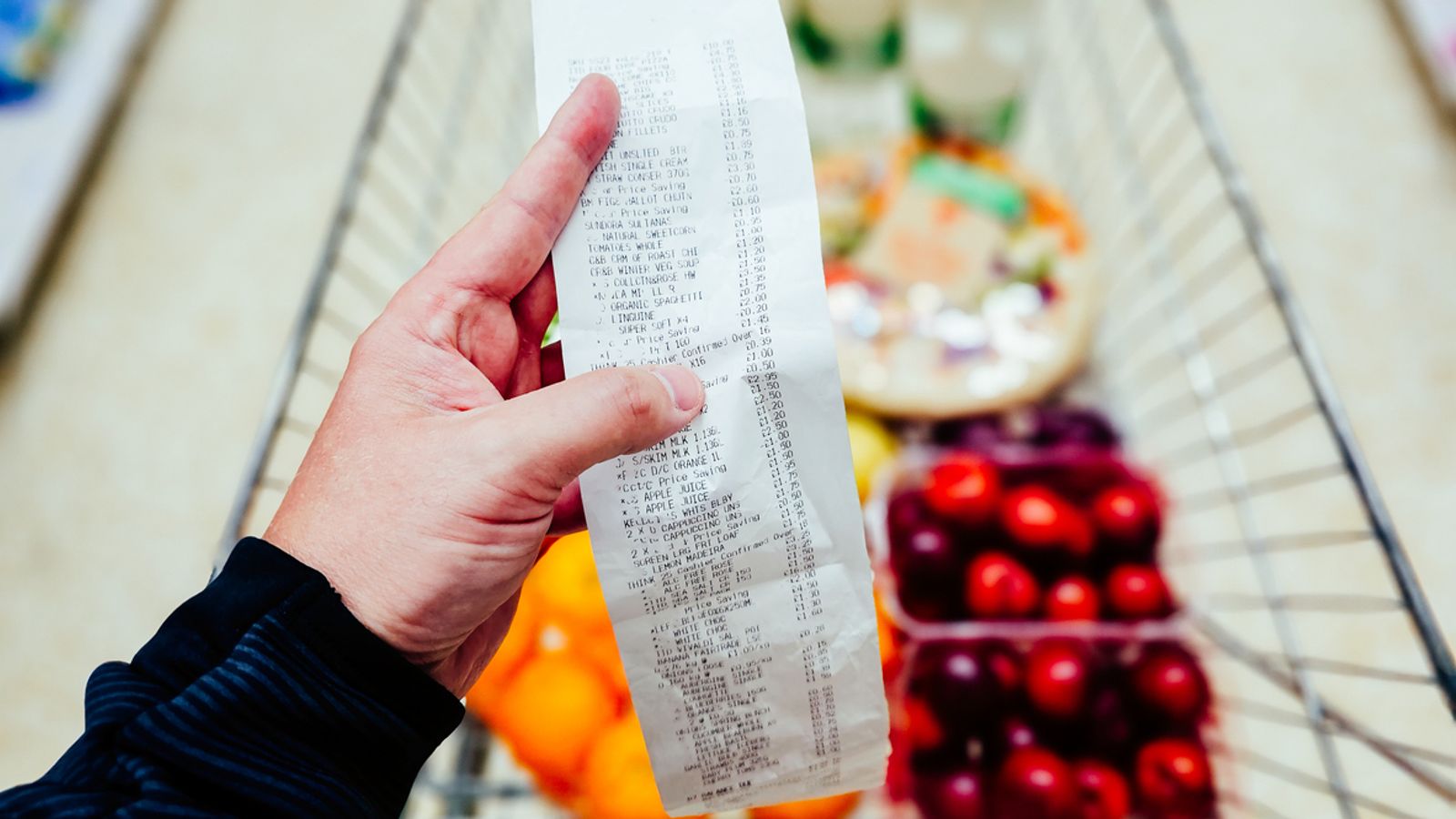The government is taking credit for the inflation rate fall – should it?

From its 40-year high of 11.1% in October 2022, the headline rate of inflation – the consumer prices index (CPI) – is back within touching distance of the Bank of England’s 2% target rate.
The government, naturally, will seek to take credit for it. Rishi Sunak, after all, promised to halve inflation last year and was quick to point to that when it happened.
Money latest: Interest rate cut chances fall away as inflation drops less than expected
It was a piece of chutzpah that brought to mind the old saying “success has many fathers, but failure is an orphan”.
For if anyone deserves credit for bringing down inflation to the target rate, it is arguably the Bank of England, whose interest rate rises from December 2021 to August last year bore down on demand and on some of the inflationary pressures that can build in an economy when demand is too high.
Can the government take credit?
In so far as the government can take credit for bringing down inflation, it is because – since the debacle of Liz Truss‘s short spell in 10 Downing Street – Rishi Sunak and Jeremy Hunt have restored order to the public finances, calming the panic in markets which erupted when Ms Truss sought to introduce £45bn worth of unfunded tax cuts.
From the depths it plumbed after the mini-budget in September 2022, sterling has rallied by 22% against the US dollar and by 8% against the euro.
All things being equal, that has brought down the cost of goods and services that the UK buys from the US and from countries in the eurozone, which may at the margins have had an impact on inflation.
How government policy actually brought inflation up
In other ways, though, government policies have helped push up inflation. Public sector pay between January and March, the latest period for which figures are available, was up 6.3% year on year. That obviously feeds into higher prices.
The chancellor has also actively increased inflation by raising taxes on tobacco, as he did last year.
The government has also just raised the national living wage by 9.8%, the biggest increase in history, which again will feed into higher prices and particularly in sectors such as hospitality.
So the government – now it faces a general election on 4 July – cannot really take that much of the credit for inflation falling to target.
Read more about the general election:
What happens now an election has been called?
Find your new constituency and how it’s changed
How boundary changes make Starmer’s job harder
The MPs who are standing down
Credit to the Bank and retailers
The Bank’s monetary policy committee deserves more. So, too, do some of the UK’s retailers.
The latest figures published by the British Retail Consortium suggest shop price inflation was running at an annual rate of just 0.8% in April – down from 1.3% in March.
In other words, by bearing down on prices, retailers are contributing strongly to the decline in inflation. The market is competitive and consumers are benefiting.
In truth, though, most of the heavy lifting in bringing down inflation has come from so-called “base effects” – the impact of the corresponding “base” the previous year.
To use a real life example from the Office for National Statistics, meat prices fell by 0.5% between February and March this year, compared with a rise of 1.4% between those months last year. That resulted in an annual rate of inflation in meat prices of 3.1% in the year to March 2024, which was the lowest rate since November 2021.
Prices can still be rising but yet contribute to a lower headline rate of inflation. If the price of an item in the inflation basket was rising by 10% in April last year but was only rising by 5% in April this year, that automatically feeds through to a lower headline rate of inflation.
That can be seen with today’s figures: the cut in the household energy price cap introduced by Ofgem in April this year was a major contributor to lower inflation.
Where the inflation problem came from
Inflation took off in 2022 mainly because of Russia’s invasion of Ukraine, which pushed up the price of oil and – thanks to Ukraine’s position as one of the world’s biggest exporters of corn, seed oils, wheat and rapeseed – a whole clutch of foodstuffs.
It had another boost when, at the end of 2022 and the beginning of 2023, China suddenly relaxed its COVID restrictions – unleashing a big burst of demand from the world’s second-largest economy for commodities like oil. That pushed up prices elsewhere.
Some of the biggest elements in the UK inflation basket – food and non-alcoholic drinks, clothing and footwear, furniture and household goods – are not rising in price to the extent that they were a year ago and certainly not to the extent they were in the autumn of 2022.
That is the main reason inflation has come back down to the Bank’s target rate.
Related
Why investing in women is a vital next step for…
Get Nadine White's Race Report newsletter for a fresh perspective on the week's newsGet our free newsletter from The Independent's Race CorrespondentGet our fre
Business secretary signals major shift on electric car policy to…
In a determined effort to retain Nissan’s manufacturing presence in Britain, Business Secretary Jonathan Reynolds has vowed to implement “substantial c
Joint Statement: Business Secretary and Fujitsu Services Ltd
Business and Trade Secretary Jonathan Reynolds today (Friday 7 March) met chiefs for Fujitsu in Tokyo to begin talks over the cost of redress for victims of th
UK foreign secretary backs multilateral defence funding for Europe
UK foreign secretary David Lammy has said that a new multilateral fund will be needed to secure Europe’s defence as he confirmed that Britain is “open to”













